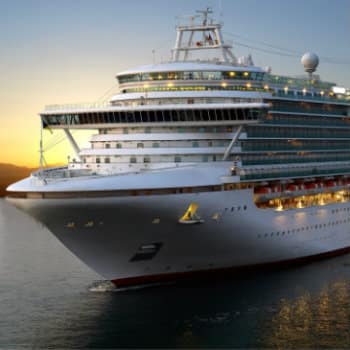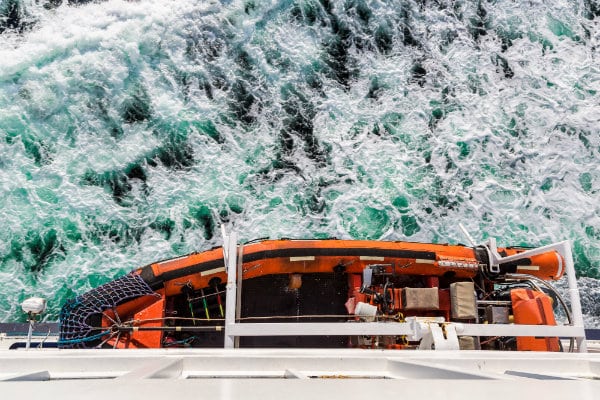If you’ve recently suffered an injury as a maritime or offshore worker in Florida, you may have several concerns:
Contact our experienced maritime injury lawyers in Florida today to learn more about your right to financial compensation after an offshore injury.
With the most coastlines in the continental United States, Florida is a major powerhouse in the maritime industry. Cargo transportation, cruises, and commercial fishing are just a few of the more popular offshore industries in operation off Florida’s costs. These industries are a significant source of employment in the region, ranking at #2 in the United States with over 52,000 jobs and $9.6 billion in revenue each year.
Florida’s maritime workers show up and work hard each day, but sometimes an unexpected offshore injury occurs and requires missed days from work. When this happens, it’s important for these workers to receive the financial compensation they deserve until they get back on their feet.
Individuals employed by the maritime industry in Florida who have suffered offshore injuries can contact our maritime accident attorneys today for legal guidance. Let an experienced law firm answers all your questions about the claims process in a free legal consultation.


Florida has a total of 19 ports spread throughout the state’s coastlines. Some of the ports that see the most traffic include:
Port Everglades generates more revenue and creates more jobs than any other port in the state – accounting for over $30 billion in total economic activity each year and about 226,500 jobs (both directly and indirectly linked to the port). This port ranks in the top 3 for total cruise ship passengers each year and is also one of the leading container ports in the country. It’s also one of Florida’s leading suppliers of petroleum products, such as gasoline and jet fuel.
Known as the “Cargo Gateway to the Americas”, the Port of Miami is a center of international and domestic commerce. This port accounts for about $18 billion in total economic activity for South Florida each year, and more than 176,000 employees are either directly or indirectly involved with the port. Goods from all over the world are imported here, including from China, Europe, and Latin America.
Run by the Jacksonville Port Authority, the Port of Jacksonville is one of the most important sources of revenue for northern Florida’s economy. Each year, this port generates approximately $2.7 billion each year, including $1.3 billion in employee wages.
Important terminals within this port include:
In terms of tonnage and amount of land, the Port Tampa Bays is the largest of Florida’s ports. This is a full-service port which handles cruise passengers, various types of cargo, and other maritime activities (such as shipbuilding and repair). Port Tampa Bay’s annual economic impact is around $15 million and this port directly or indirectly accounts for about 80,000 jobs.
If you work on or near the water in Florida, you’re likely covered under one of two federal laws when a work injury occurs:
Maritime workers who meet the Jones Act’s definition of a “seaman” are covered under this law. Generally, this means you spend at least 30% of your work hours in the service of a vessel on navigable waters. The vessel doesn’t necessarily need to be in motion for you to qualify for this form of compensation.
Those workers covered under the Jones Act can receive maintenance and cure benefits which go towards necessary living expenses and medical bills. These benefits are no-fault and are provided to you regardless of how your injury occurred.
In some cases, the Jones Act allows injured employees to sue their employers if some form of negligence played a role in their injury. This could include direct employer negligence (such as failing to provide on-board safety measures) or mistakes by your co-workers. Additionally, vessel owners can also be sued if an unsafe or defective vessel condition existed when you were injured.
Workers covered under the Jones Act may include, but are not limited to:
If you work on or near the water but you’re not covered under the Jones Act, you are most likely covered by the Longshore and Harbor Workers’ Compensation Act (LHWCA). These benefits are always no-fault – you’re entitled to file a claim for any work-related injury, and your employer is usually protected from lawsuits, even if negligence played a role in your accident.
Employees who are usually covered under the LHWCA may include:
Maritime workers are governed by different rules than most land-based workers when an injury occurs. These injuries involve the complex field of maritime law, which consists of multiple federal and international laws. While an injured maritime worker may have the option to apply for financial compensation after an injury, many of these workers struggle to receive the compensation they deserve.
Whether you’re filing a Jones Act claim or applying for benefits under the LHWCA, it’s usually wise to have the guidance of a lawyer who specializes in maritime law. A knowledgeable and experienced lawyer can help you meet the requirements of the claims process, represent you in court, and help you secure the maximum financial compensation you’re entitled to.
To begin exploring your legal rights after a maritime work injury, contact us today for a free consultation.
Continue Reading: Benefits Available For Injured Illinois Maritime Workers

 info@legalherald.com
info@legalherald.com